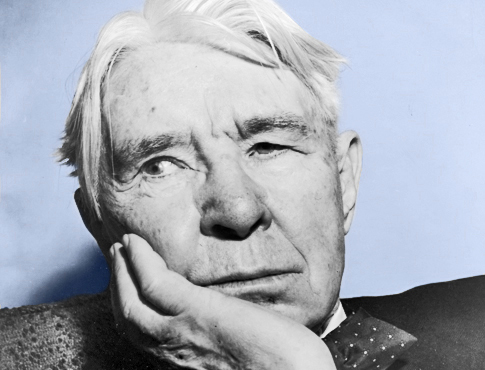
Carl Sandburg met his wife Lilian Steichen through her brother, the photographer Edward Steichen, with whom he was good friends. Lilian and Carl met in the Wisconsin offices of the Socialist Party of America, where they were both members, and their relationship began in letters discussing everything from socialist philosophy to poetry. About a year later, they married. Sandburg called his wife “Paula,” and she encouraged him to stop going by “Charles” and return to his given name. They also gave each other nonsense names (Snick and Buppong), a practice which Sandburg would later extend to their children (Spink, Skabootch, and Swipes). Sandburg and Steichen’s relationship remained strong, and they continued to write each other letters while living at Connemara Farms, their North Carolina home. They remained there together until Sandburg’s death in 1967.
To Paula Steichen
Flat Rock, North Carolina
October 1952
Dear Snick:
As you well know there is a widespread custom of one person saying to another, “Oh, shut up!” And the answer coming swiftly and immediately, “Oh, shut up yourself!” Now I find in Shakespeare’s time it was done differently. Instead of “Oh, shut up!” it was “Charm your tongue!” to which came the response, “I will be liberal as the air in my speech!” Now I have seen you often having not merely perfect but exquisite manners and I call your attention to the foregoing technique in behavior for whatever it may be worth to you and your studious lovable carrot-haired brother for whatever it may be worth to you and to him. Tall elegant bushels of love to the both of you. I think of you as my Mexican Zinnia. Others may have Mexicale Rose but you came in Zinnia time and I see three of them before me now, thoughtful in a quiet dreaminess. So I say Pax Vobiscum and
Yours Forever
Buppong
From The Letters of Carl Sandburg. Edited by Herbert Mitgang. New York: Harcourt, Brace and World, 1968. pp. 576.
FURTHER READING
Carl Sandburg also wrote his wife poetry. One of his best-known examples, The Great Hunt, is here.
For more on Sandburg’s socialism, see these notes on his politics as a young man.


